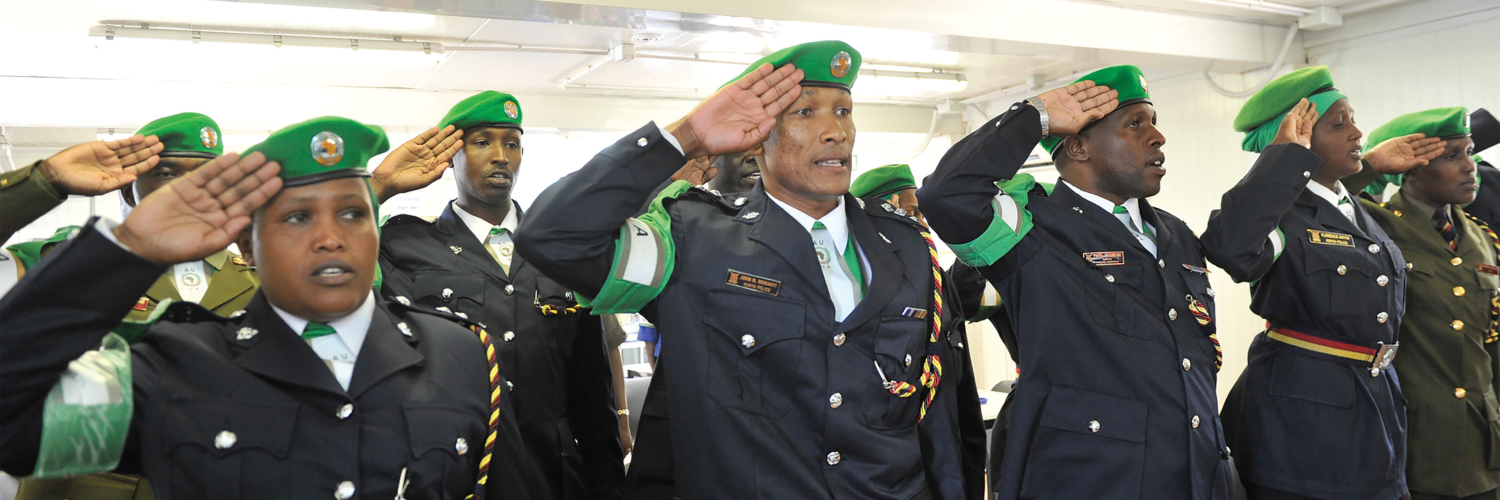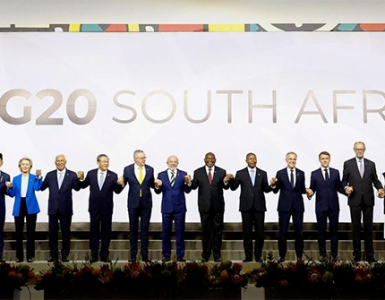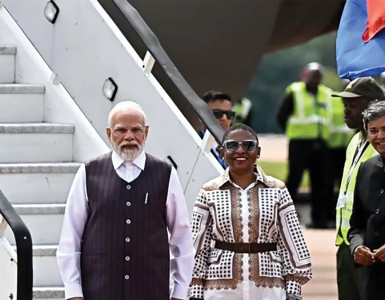DEPLOYMENT: Kenya’s plan to send 1,000 police officers to Haiti undermine’s the country’s fragile sovereignty
By Sobukwe Shukura
In January 26, 2024, Kenya’s high court deemed its plan to send 1,000 police officers to head up a so-called United Nations peacekeeping mission in Haiti unconstitutional. This is because there is no evidence of an agreement between Haiti and Kenya granting these powers, even as the UN Security Council has already endorsed this problematic policing initiative.
Despite this court judgment, and the many Kenyan voices expressing opposition to this project, President Ruto continues to assert that he will go ahead with this mission, stating: “We already have bilateral relations with Haiti, all that needs to be done now is for Haiti to make a request to Kenya and the mission will go ahead.”
Yet, there is currently no elected government in Haiti. President Jovenel Moise, who was assassinated in July 2021, had extended his term without a ballot process for years, and the current prime minister, Ariel Henry, was put in this position days before Moise’s assassination and continues to preside with no legal mandate or popular support. On March 1, 2024, President Ruto signed an agreement with Henry in Kenya, despite him being an unelected and unsupported prime minister.
In a scenario where there is no elected parliament, local government, or president, just who is President Ruto signing agreements with for a deployment of Kenyan Police in Haiti?
To reflect on this situation, and, above all, to amplify citizen voices to contest it, on January 24 the Pan-African Socialist Alliance held a “Hands Off Haiti”: Resist Occupation program at the Kenya National Theatre. The objective was to challenge this UN mission encouraged by the US and the “Core Group.”
As its organizers, we agree with the US-based Black Alliance for Peace that this project is just imperialism in blackface. In keeping with the sentiment shared by many Kenyans, we say, “no to Blackface imperialism” and “yes to Haitian sovereignty.”
Unfortunately, our “Hands off Haiti” event on January 24 was infiltrated by a number of Ruto supporters, who seem to have very little information about Haiti currently or historically. These government stooges initially came early to observe, left, and then returned with t-shirts that read “Africa4Haiti” on the front, and “We Support the Peace Mission” at the back. These sentiments were overshadowed by the prev
ailing anti-imperialist sentiments of the audience, among them adept students of history; they do not close their eyes to the imperialism sanctioned by Kenya in Somalia and beyond, its penchant for being—in the words of human rights activist and community organizer Gacheke Gachihi—an “appendage of imperialism.”
Erica Caines, our special guest from the Black Alliance for Peace, made plain America’s interests in this island of 12 million. From her narrative, it is clear that this proposed UN mission in Haiti will only yield disastrous results. Like America’s invasion of Iraq to supposedly monitor and destroy “weapons of mass destruction,” or NATO’s 2011 intervention to “protect” civilians in Libya, this is the weaponization of imposed “peace” projects. The current genocide in Palestine tells you all you need to know about the priorities of the West, and who it actually wants to protect.
Haiti, named “Ayiti” by its indigenous people who were annihilated by the imperial operations of Europe, was the first nation to liberate itself from slavery and settler-colonization in 1804. Starting in 1791, the enslaved Africans led a heroic battle against the slave-owning settlers; they defeated the French, British, and Spanish, freeing the enslaved on both sides of the island formerly called Santo Domingue.
Haiti was a free nation for all Africans and was the only country to come to the aid of Simone Bolivar and the forces in South America fighting Spanish colonialism. With this internationalist gesture, they asked only one thing: for the enslaved to be free.
It is this powerful history that continues to irk the West; the US did not recognize Haitian sovereignty then and, by their de facto actions against it, certainly does not respect Haitian sovereignty now. From 1915 to 1934, it invaded Haiti under the guise of stabilizing the country. Ironically, this, too, was after a president’s assassination. In this “stabilization” process, more contemporarily known as a “peace” mission, the US looted the Haitian gold reserves and installed a puppet regime.
Not content with occupation and thievery, the US-backed Presidents Papa Doc and Baby Doc Duvalier’s death squads, the “Toton Makout,” for two generations. This sinister meddling in the affairs of Haiti continued with the overthrow in 1991 and subsequent kidnapping in 2004 of well-loved, and democratically elected, President Jean-Bertrand Aristide.
News reports convey that Kenya will receive 14 billion Kenya shillings (USD100 million) in exchange for this proposed policing project. This is, perhaps, a drop in the ocean compared to what the “Core Group,” the progenitors of the disastrous 2004 MINUSTAH occupation of Haiti and ongoing self-imposed adjudicators of its “peace,” stands to gain from this new “stabilizing” mission.
Kenyans, Africans, and real peace activists can’t ignore the facts; the proposed Kenyan mission to Haiti is an imperialist charade—the UN is again being weaponized by the same forces that sought to control this island, but this time using a force that looks just like the Haitian people. SEE PAGE 14
- Sobukwe Shukura is a multimedia cultural worker; photographer, poet and organizer for the All-African People’s Revolutionary Party (AAPRP), organising between Kenya and the US. This article was sourced Africa is a country
Comment
UNSURPRISING
FRAGILITY OVER CHURCH REPARATIONS
Former United States president Abraham Lincoln, presumably addressing anti-slave abolitionists of his time, once said: “Whenever I hear anyone arguing for slavery, I feel a strong impulse to see it tried on him personally.” Surely, Lincoln would probably have said the same today had he lived to hear the incomprehensible noise from those who vehemently oppose reparations for the past cruel enslavement of Africans – as proposed by the Church of England, also known as the Anglican Church at former British colonies.
While this quarter remains coldly impervious and insensitive to the crude inhumanity of slavery and its grievous impact, it has cared not to be more circumspect in the manner in which they express their dissent. Nor have they pretended to muster compassion to commiserate with descendants affected by the brutal legacy of the African slave trade, and the lingering pain today. Yet, Lincoln’s words, uttered as they were more than 100 years ago, are poignantly still relevant and instructive, offering wise counsel to those who won’t hear, while also offering just as damning a rebuke to what is happening in the world today.
Our invoking of Lincoln’s quote is not even remotely in memory of the sordid enterprise of the hardened slave masters of his time, but rather in utter dismay at the same band of naysayers from that cradle of imperialism – Britain. Yes, they who in their indignation at the Church of England’s moral decision to make reparations to thousands of African descendants whose enslaved forebears were dehumanised beyond imagination, do not even realise that they are aligning themselves with the credo of a callous system of the past.
Still unperturbed, they have failed to appreciate the magnanimity of the church’s gesture expressing true remorse after revisiting the sins of an unseemly chapter of its past. Credit to it again for its candour about its leadership having also known they were investing in the transatlantic slave trade during the 18th century, which is encouraging. Unfortunately, none of this will make sense to the naysayers heckling on the fringes and who are clearly motivated by bigotry.
Still, it is no wonder that these dissenters are terribly unhappy that the Black-led independent group – tasked to look into a reparations model – has recommended to the church that the initial target of 100 million pounds for reparations was not enough – and instead the figure be upped to one billion pounds (R20 billion).
Commendably, the church has acceded to turn the 100 million pounds financial commitment into a one billion pounds fund. To which, the objectors have responded by labelling the gesture as anti-Christian – some even going as far as warning the billion-pound proposal was motivated by a death wish for the church as most congregants would now stop donating.
To this unholy mess spewed from the fringes, we are truly gobsmacked. Nonetheless, we urge the church to stay the course and not to be dissuaded.





























